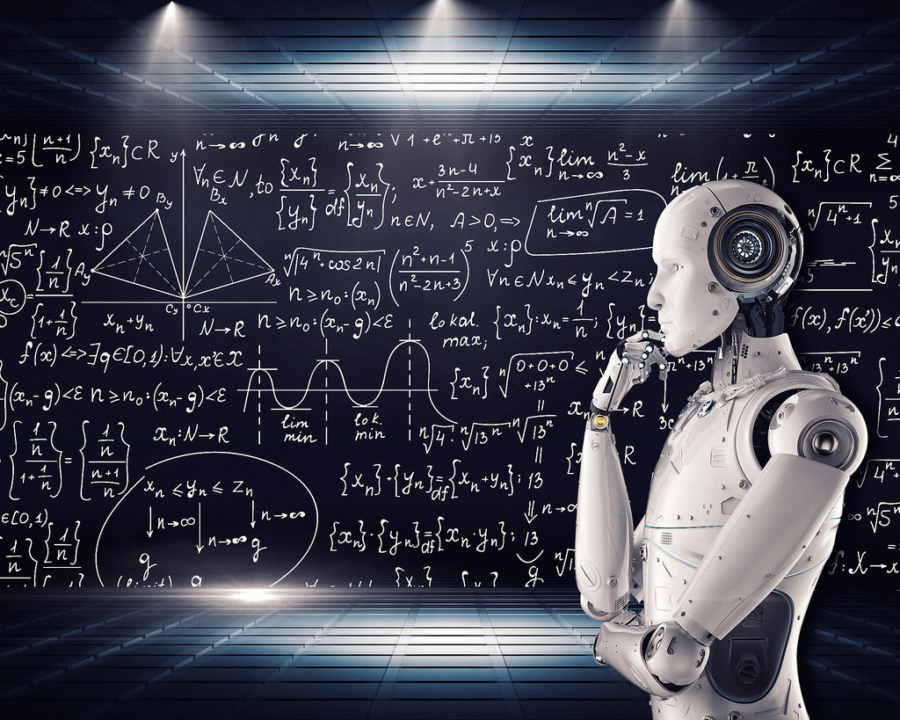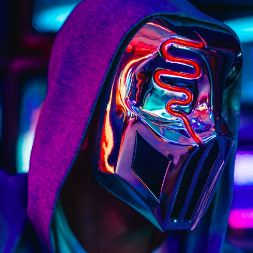How AI And Humans Can Coexist
AI and robotics are on the rise, and all of this innovation is causing some people to fear for their careers.
October 13, 2018
We are living in a world full of technology and robotics, like self-driving cars, housekeeping robots and even a burger-grilling droid called Flippy. This is just the beginning of the robotic revolution. AI and robotics are on the rise, and all of this innovation is causing some people to fear for their careers. At this time, there are several jobs that are already being replaced or assisted by robots and computers. In just a few years, some believe robots may even take over the workforce. Yikes! According to The Verge, “A new report predicts that by 2030, as many as 800 million jobs could be lost worldwide to automation.”
To most people, this may sound alarming. But before we begin to panic, it would be best to hear the opinion of an AI specialist and some professional workers regarding the issue. The Howl had the privilege of interviewing DevMasters senior data scientist, Zia Khan. Also interviewed were a teacher, firefighter and doctor (which according to Forbes) are one of the top three careers kids want to pursue in the future.
Though some people presume that AI will threaten future employment, there is a debate that the use of robots may instead create additional jobs.
Professional workers share the same viewpoint: genuine listening, compassion, and human touch are some of the abilities that AI can’t replace.
“Often times, our job requires us to respond to people in their greatest time of need. A talking computer cannot fathom the emotions that a family may be experiencing at the time,” said firefighter Dave Chen, of Rancho Cucamonga Fire Station 173.
“AI cannot replace the genuine compassion, servanthood towards mankind, and the human touch the fire service offers every day. Human interaction provides the emotional support and understanding that people need and crave,” said Aaron Segaar, fire captain-paramedic.
“Genuine listening, human touch, compassion and the clinical gestalt are four characteristics that AI will never replace in any field of medicine. As useful as AI applications are, they do not replace the human perspective and experience,” said physician’s assistant, Patrick McGrath.
“A major part of my job is rapport – the connection I have between the student and myself. A teacher establishes [rapport] with a student. As I get to know the student, I have an understanding of when they are happy, when they are sad, when they are being defiant by not doing their work, or when something is going on that is preventing them from doing their work. I can adjust for that,” said 5th-grade teacher, Mr. Mecozzi. AI can probably be used in the classroom to grade students’ multiple choice test, preparing teaching plans or for references, but they cannot replace the emotional intelligence our teachers have.
In general, one of the many reasons why humans crave advancement in technology is to make routine things easier or to save time. Yes, jobs requiring routine skills that may be replaced by automation or AI, but there are also jobs or tasks that can only be fulfilled by humans. Computers and AI work completely differently from how humans operate. We are in a period of change – a change where human and artificial intelligence can co-exist in the workplace with humans heading the show.
Let’s do a reality check. Machine Intelligence may be more precise and efficient, but humans have unique skill sets that no machine can ever replicate. Compassion, love, acts of kindness, empathy, creativity and the ability to adapt are the traits that differentiate us from AI. Current AI is very good at solving multiple problems, although it is unlikely that it can replace human emotional intelligence. It is almost impossible for AI to be enabled in demonstrating empathy and intuition. With AI possibly replacing repetitive, administrative tasks of humans in the workforce, this will open up opportunities for jobs that require the emotional intelligence of humans.
“We can always differentiate ourselves with the uniquely capable jobs that are both compassionate and creative, and, using and leveraging our irreplaceable brains and hearts. AI is serendipity. It is here to liberate us from routine jobs, and it is here to remind us what it is that makes us human. So let us choose to embrace AI and to love one another,” said AI expert, Kai-Fu Lee – TED 2018.
We will need additional teachers to guide and encourage kids to thrive in the future. If we are ever in need of help (physically or emotionally), we have medical caretakers, law enforcement or social workers to turn to. AI is here to help and provide us with more, better opportunities. We can value AI and machine learning as tools to help jobs in the workforce become even more creative. We should not fear that machine intelligence will one day lead to the future of mass joblessness. Instead, we should consider how humans and AI can actually co-exist in the workplace. Technology has changed the way humans have worked and will continue to do so in the future. But if we choose to love and care for each other, humanity should be just fine.






